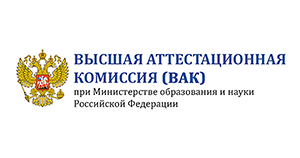|
Перейти
на сайт журнала "Врач" |
Перейти на сайт журнала "Медицинская сестра"
|
Перейти на сайт журнала "Фармация"
|
Перейти на сайт журнала "Молекулярная медицина"
|
Перейти на сайт журнала "Вопросы биологической, медицинской и фармацевтической химии"
|
Журнал включен в российские и международные библиотечные и реферативные базы данных
|
ВАК (Россия)
|
РИНЦ (Россия)
|
Эко-Вектор (Россия)
|
EFFECT OF METABOLIC TYPE OF OBESITY ON BLOOD MICROBIOM
DOI: https://doi.org/10.29296/25877313-2022-02-06
Issue:
2
Year:
2022
Background. Recent studies have shown a significant role of the gut microbiome in various pathologies including obesity. It is assumed that the gut microbiome is one of the sources for the formation of the blood microbiome. Obesity is associated with changes in the gut microbiome, which may also affect the blood microbiome. It is customary to distinguish between metabolically healthy obesity (MHO) and metabolically unhealthy obesity (MUHO) depending on the metabolic complications risk. Aim. To study the influence of the metabolic phenotype of obesity on the blood microbiome formation. Materials and methods. The study included 116 healthy donors and 101 obese patients. Depending on the metabolic type of obesity, the obese pa-tients were divided into subgroups with metabolically healthy obesity (MHO, n=36) and metabolically unhealthy obesity (MUHO, n=53). Quantitative and qualitative assessment of the blood microbiome was based on metagenomic analysis. Blood samples were used to isolate DNA and perform sequenc-ing of the variable v3-v4 region of the 16S rRNA gene. Results. In patients with MHO, the characteristics of the alpha-diversity of the blood microbiome were like those of healthy donors. However, MUHO is associated with an increase in the blood microbial diversity. The main phyla of the blood microbiome were Bacteroidetes, Firmicutes, Proteobacteria, and Actinobacteria. Cyanobacteria, TM7, Thermi, Verrucomicrobia, Chloroflexi, Acidobacteria, Planctomycetes, Gemmatimonadetes, and Tenericutes were found to be less significant phyla of the blood microbiome. Phyla Acidobacteria, TM7 and Verrucomicrobia were more often isolated in blood samples of patients with MUHO compared with healthy donors. Conclusion. MUHO linked to increased diversity of the blood microbiome. This appears to be due to increased microbial translocation from the intes-tine and non-intestinal sources.
Keywords:
blood microbiome
blood bacterial DNA
obesity
metabolically healthy obesity
metabolically unhealthy obesity
References:
- Castillo D.J., Rifkin R.F., Cowan D.A. et al. The healthy human blood microbiome: Fact or fiction? Front. Cell. Infect. Microbiol. 2019; 9(MAY): 1–12.
- Bäckhed F., Ley R.E., Sonnenburg J.L. et al. Host-bacterial mutualism in the human intestine. Science. 2005; 307(5717): 1915–1920.
- Sonnenburg J.L., Xu J., Leip D.D. et al. Glycan foraging in vivo by an intestine-adapted bacterial symbiont. Science. 2005; 307(5717): 1955–1959.
- Turnbaugh P.J., Ley R.E., Mahowald M.A. et al. An obesity-associated gut microbiome with increased capacity for energy harvest. Nature. 2006: 444(7122): 1027–1031.
- Ley R.E., Turnbaugh P.J., Klein S. et al. Human gut microbes associated with obesity. Nature. 2006; 444: 1022–1023.
- Schwiertz A., Taras D., Schäfer K. et al. Microbiota and SCFA in lean and overweight healthy subjects. Obesity. Nature Publishing Group. 2010; 18(1): 190–195.
- Iacobini C., Pugliese G., Fantauzzi C.B. et al. Metabolically healthy versus metabolically unhealthy obesity. Metabolism. Elsevier Inc. 2019; 92: 51–60.
- Phillips C.M. Metabolically healthy obesity: Definitions, determinants and clinical implications. Rev. Endocr. Metab. Disord. 2013; 14(3): 219–227.
- Гапонов А.М., Волкова Н.И., Ганенко Л.А. и др. Особенности микробиома толстой кишки у пациентов с ожирением при его различных фенотипах. Журнал микробиологии, эпидемиологии и иммунобиологии. 2021; 98(2): 144–155 (Gaponov A.M., Volkova N.I., Ganenko L.A. i dr. Osobennosti mikrobioma tolstoj kishki u pacientov s ozhireniem pri ego razlichnyh fenotipah. Zhurnal mikrobiologii, jepidemiologii i immunobiologii. 2021; 98(2): 144–155)








